#Global Gender Equality Conference
Explore tagged Tumblr posts
Text
Alexander Smith’s PowerPoint presentation doesn’t appear designed to court controversy. The slides, focused on declining maternal health in Gaza, cite public health data from the United Nations and World Health Organization. His employer, the U.S. Agency for International Development, had selected him to share it at the government agency’s Global Gender Equality Conference. But just before the conference, an issue of contention emerged. A single slide mentioned international humanitarian law in context of the health crisis in Gaza. USAID staff cited the slide and discussion of international law as potential fodder for leaks, documents and emails Smith shared with The Intercept show. Despite Smith’s willingness to make revisions, his presentation was eventually cancelled. On the last day of the conference, he found himself out of a job. “I thought it is really obscene that misinformation can go out freely out into the world [about Gaza], but I can’t talk about the reality of starving pregnant women,” said Smith, who worked as a contracted senior adviser at USAID on gender and material health. “We can’t even whisper about that in a conference on that topic.” In a statement to The Intercept, the agency declined to comment on personnel matters but said Smith was not forced out over the presentation. “As an Agency, we value and intentionally seek out a diversity of viewpoints,” said a USAID spokesperson. Smith, who is both a lawyer and public health expert, had worked for USAID for four years. In February, he submitted an abstract for his presentation — titled “An Intersectional Gender Lens in Gaza: Ethnicity, Religion, Geography, Legal Status, and Maternal/Child Health Outcomes” — which was accepted for the small USAID conference. He was scheduled to present on May 22 in Washington, D.C. On May 10, two weeks before the conference, the State Department issued a report — dubbed the “NSM-20” report — about Israel’s compliance with international law. As The Intercept reported, USAID officials had urged Secretary of State Antony Blinken to find Israel’s commitments to international law were not credible based on its conduct in Gaza since October. Blinken’s report hedged considerably, expressing “deep concerns” about “action and inaction” by the Israeli government that resulted in “insufficient” aid delivery to Gaza, while concluding Israel was not “prohibiting or otherwise restricting the transport or delivery of U.S. humanitarian assistance.” At the conference, Smith wanted to touch on international humanitarian law. His slides on the topic did not mention Israel specifically, the presentation shows. “I wasn’t planning to stand up and yell ‘Israel is committing genocide,’” Smith said. “I was stating the laws.”
continue reading
#us#U.S. Agency for International Development (USAID)#Global Gender Equality Conference#presentation cancellation#gaza healthcare#international humanitarian law#israeli-occupied gaza#free palestine
7 notes
·
View notes
Text
An open letter from Dr. Tamer Al-Najjar, a professor and consultant in Environmental Engineering in Gaza. Before October 7th, he was a respected and in-demand expert on hydrologic engineering. He describes what his life is like now.
Nothing will Ever be the same Again
It will never be easy at all to return and continue living normally after this war has shattered everything in our hearts, our trust in the world the countries around us, the books, history, strategic plans, and more!!
How should I go back to work as an environmental engineering expert, dealing with climate change and sustainability goals? While all my international memberships couldn’t protect me from the shelling and killing!
How can I participate in conferences and research journals about resource and water supply management in conflict zones? None of it granted me at least the minimal requirements of water as recommended by the WHO.
And how can I continue designing sustainable buildings for clients in Eastern and Western countries and interact with people as if nothing has happened when the entire world has let us down?
A million ‘hows’ I pose, and I find no logical answers for them in this context!!
A million research papers, books, and volumes have been crafted by the West in major international conferences, summits, and meetings about the concepts of international law, human rights, food and water security, green economics, gender equality, environmental project empowerment, and entrepreneurship. In Gaza, we are a part of it, seeking alignment and keeping up with global progress.
Now, all of it has lost its value; all of it is reduced to zero, devoid of meaning altogether. How can it hold any value when I used to train in international projects on strategic planning, sustainable project management, and gender equality in many subjects and do research on water and food security, among other topics? I now only seek survival. Just survival!
It has become futile, with no purpose left. This is our new reality.
Dr. TAMER M. ALNAJJAR / GAZA / NOV. 4,2023
@najjart_1
Source: Tamer Al-Najjar on Instagram
You can find Dr. Al-Najjar on Instagram and Twitter/X at “najjart_1”
#gaza genocide#north gaza#gaza#gaza strip#gaza under attack#free gaza#from the river to the sea palestine will be free#palestinian genocide#environment#environmetalists#enviromental#engineering#sustainability#sustainable#go green#tamer al najjar
231 notes
·
View notes
Text
In January 2020, Mexico made history as the first Latin American country to adopt a feminist foreign policy. Pioneered by Sweden six years earlier in 2014, feminist foreign policy (FFP) initially began as a niche effort in the Nordic region. For many years, Sweden stood alone on the global stage, emphasizing that its FFP focused on enhancing women’s “rights, resources, and representation” in the country’s diplomatic and development efforts worldwide. That effort was the result of the vision and leadership of Sweden’s foreign minister at the time, Margot Wallstr��m, although there was widespread support for the policy across the government and it was continued by subsequent ministers.
It would be another three years before other nations followed suit: In 2017, Canada announced a Feminist International Assistance Policy. At the end of 2018, Luxembourg’s new coalition government committed to developing a FFP in their coalition agreement. And in 2019, Mexico and France pledged to co-host a major women’s rights anniversary conference in 2021 while beginning to explore the development of feminist foreign policies simultaneously.
I had an inside view on that process having convened the existing FFP governments and numerous international experts just before Mexico’s announcement. Together, we developed a global definition and framework for FFP. As I wrote for this magazine in January 2020, this approach was largely followed by the Mexican policy. The goals for Mexico in adopting an FFP were to increase the rights of women and LGBTQ+ individuals on the world stage, diversify their diplomatic corps, boost resourcing for gender equality issues, and ensure that internal policies within the foreign ministry aligned with this approach, including a zero-tolerance policy toward gender-based harassment.
Now, under the leadership of a new female foreign minister, Alicia Bárcena, and following the election of Mexico’s first woman president, Claudia Sheinbaum, I was excited to travel to Mexico City in July as it hit another milestone: becoming the first country outside Europe to host the annual ministerial-level conference on FFP. It was an opportunity for me to take stock of what Mexico has achieved since it adopted an FFP, and to see what progress it has made toward its goals.
Initially convened by Germany’s Annalena Baerbock in 2022 and then by the Dutch last year, Mexico took a unique approach to the conference by focusing it on a specific policy issue—in this case, the forthcoming Summit of the Future. This conference, taking place at the U.N. General Assembly in September, aims to begin laying the groundwork for the successor goals to the Sustainable Development Goals framework. It is already a fraught and polarized process, and progressive leadership is sorely needed.
Last week provided clear evidence that Mexico is making progress in modeling that leadership—including in consistently advocating for progressive language in often contentious international multilateral negotiations, such as the United Nations Climate Change Conference (COP). For example, in its interventions at the latest COP, Mexico placed human rights, intersectionality and gender equity at the heart of climate action and recognized the role of women environmental defenders and Indigenous women in a just transition.
“Mexico is often a lone voice in holding the line on critical human rights, Indigenous rights and gender equality language at the climate talks, even among the FFP countries,” said Bridget Burns, the executive director of the Women’s Environment and Development Organization who has spent the last 15 years organizing women’s rights activists in climate negotiations and attended the July conference to speak on the sustainable development panel.
Mexico’s decision to link their hosting of the FFP Conference to the Summit of the Future—as evidenced in an outcome document they published and are circulating for signature ahead of the General Assembly’s high-level week in September—challenged FFP governments to engage a feminist approach in mainstream foreign policy dialogue, not just in gender-related discussions like the U.N. Commission on the Status of Women. “The Summit of the Future aspires to a better tomorrow, but lofty goals won’t translate to real systemic change without feminist civil society,” said Sehnaz Kiymaz, senior coordinator of the Women’s Major Group.
On the multilateral front, Mexico has shown leadership by co-chairing the Feminist Foreign Policy Plus Group (FFP+) at the UN, alongside Spain. This body held the first ministerial-level meeting on FFP at the General Assembly last year and adopted the world’s first political declaration on FFP. Signed by 18 countries, governments pledged “to take feminist, intersectional and gender-transformative approaches to our foreign policies,” and outlined six areas for action in this regard. This was the first time FFP countries publicly pledged to work together as a group to address pressing global challenges through a feminist approach. While smaller subsets of this cohort have worked together multilaterally to condemn women’s rights rollbacks in Afghanistan or in support of an international legal framework on the right to care and be cared for, the first big test of this more systematic approach will be the forthcoming Summit of the Future, where feminists have been advocating for gender to be referenced as a cross-cutting priority.
Mexico has also recently ratified two international instruments to directly benefit women: Convention 189 of the International Labor Organization (ILO) on domestic workers and Convention 190 of the ILO on violence and harassment in the workplace. Under the mantle of its FFP, Mexico has championed the importance of care work in the advancement of women’s rights and countries’ development at the U.N. Human Rights Council and at the Economic Commission for Latin America and the Caribbean through the Global Alliance for Care Work.
While international women’s rights activists at the conference largely gave positive feedback on Mexico’s track record, the response from Mexican civil society was more critical. Activists organized a side event to present their more skeptical view of Mexican FFP. María Paulina Rivera Chávez, a member of the Mexican coalition and an organizer of the event, argued a conference could only go so far. “It is fundamental to decenter the state, understanding that feminist foreign policies must be horizontal,” she said.
A major theme of that side event and of Mexican activists’ interventions in the official ministerial conference was the incongruence of the Mexican government’s leadership on feminist approaches internationally while women’s human rights at home have suffered. Such criticisms of the Andrés Manuel López Obrador government are not unfounded. In one particularly troubling interview a few years ago, he suggested that Mexico’s high rate of femicide—11 women are murdered daily, with rates on the rise compared to other crimes—was merely a false provocation by his political opponents. Negative biases against women are pervasive in Mexico, with 90 percent of the population holding such biases.
Mexico has made strides in improving gender equality in other areas, however. Women now make up half of the Mexican legislature and have been appointed to lead high-level institutions, such as the Supreme Court, Ministry of Foreign Affairs, and the Central Bank, with cascading positive effects on gender equality. Bárcena, for instance, clearly asserted from her first speech on the job that Mexico’s FFP would remain a top priority. This is no accident. At the federal level, significant efforts have been made to enforce gender parity laws and implement more than 80 percent of the legal frameworks promoting, enforcing and monitoring gender equality as stipulated by international benchmarks. Mexican women have also seen some improvements in maternal mortality rates, access to internet services, and protections to the right to abortion, with numerous national commitments to improve gender equality, such as measures to alleviate the burden of care on women.
But while there has been an increase in the number of women in the legislature and government positions, women from Indigenous, Afro-descendent, and working-class backgrounds continue to be underrepresented in political roles. And there has been a steady increase over the last decade in femicides, disappearances and sexual violence which Mexican feminist organizations and international actors have found are directly linked to the militarization of law enforcement under the guise of Mexico’s war on drugs and organized crime.
Additional criticisms of the Mexican FFP itself include the foreign ministry’s insularity and reluctance to engage with Mexican feminist activists in the development and implementation of its FFP. There was also a hesitation by the previous foreign ministry leadership to collaborate with Inmujeres, Mexico’s gender ministry, preferring to keep control of the FFP within the foreign ministry alone. It is not uncommon for gender ministries to be excluded in foreign policymaking as they are often perceived as lacking the necessary expertise or authority on foreign policy. However, Inmujeres is an exception in this regard and the criticism was valid. This was on my mind as I participated in the conference last month, and straight out of the gate I could observe a clear departure from the past approach under Bárcena’s leadership: The foreign ministry officially partnered with Inmujeres to co-host the conference, and the heads of both agencies were equally prominent voices throughout the three-day event. Similarly, the foreign ministry also made efforts to engage Mexican feminist civil society in conference planning, inviting civil society to a consultation day in the weeks leading up to the conference.
Following the right-wing electoral successes and likely abandonment of FFP in countries like Sweden, Argentina, and potentially the Netherlands, the success of a Mexican model of FFP is all the more important. Mexican activists I spoke with expressed optimism about Bárcena’s leadership, which they had not extended to her predecessor. Certainly, there is some cynicism about whether Mexico’s next president, a woman, will be any better on the issue of femicide than her mentor and predecessor, López Obrador, but there is some room for hope. If the leadership of a female foreign minister like Bárcena has been more effective in mobilizing political and convening power behind FFP, there’s potential that Sheinbaum will also show more interest than her predecessor.
While Mexican civil society has critiqued that Sheinbaum did not present a plan on how she would continue and improve the country’s FFP and repair the government’s relationship with feminist civil society, Sheinbaum’s plan—entitled 100 Pasos Para La Transformación—takes a human rights-based approach to gender equality. This is promising, because political approaches, which are more common, tend to reduce the human rights of women, girls, and gender-diverse persons as a means to an end, such as better economic, education, or health outcomes. The plan proposes measures to alleviate the care burden on women, safeguard sexual and reproductive health and rights, protect LGBTQ+ communities, promote gender parity in cabinets, improve land rights for rural women, reduce femicides, and more.
That Sheinbaum has not explicitly addressed the importance of Mexico’s FFP is not necessarily surprising. Most feminist and women’s rights organizations are understandably more focused on issues within their own borders, and foreign policy rarely drives political power and the focus of the electorate. Discussion of feminist foreign policy is thus typically the domain of the foreign minister and in some cases other relevant ministers—such as international development in Germany, or the trade ministry in Sweden under its previous government. (Canada’s Justin Trudeau stands out as a rare exception, having championed feminism and Canada’s feminist approach to policymaking at the Group of Seven and international gender equality forums throughout his tenure as prime minister.)
But even without top-down leadership from a president, savvy officials within the Mexican foreign and gender ministries are using FFP to make progress. While there has not yet been a public accounting of the progress made in implementing FFP, the clear leadership Mexico is demonstrating on the world stage in key negotiations, its successful conference, and the anticipated new government set the stage for Mexico to boldly advance its FFP. It will serve as a valuable example to the world.
23 notes
·
View notes
Text
Ready, Set, Pride! Last Minute Celebration Ideas

With only 24 hours left until Pride Month kicks off, it's time to start planning how you're going to celebrate with your fabulous love bugs! Are you hitting up a major pride celebration in a city near you, hosting a virtual pride event, or just keeping it low key with your partner or friends? Whatever your plans may be, get ready to show your pride and spread the love!
Join the Parade or Party
If you're lucky enough to live near a city hosting a major pride celebration, why not join the parade or party? Put on your brightest rainbow outfit, grab some glitter, and get ready to dance the day away with your LGBTQ+ community. It's a time to be loud, proud, and unapologetically yourself!
Mid South Pride (May 2-June 2) in Memphis, Tennessee: A huge celebration including Memphis Pride Fest Weekend, a Drag N Drive event, a Big Gay Dance Party, and a Pride Parade.
Gay Days at Disney World (May 30-June 3) in Orlando, Florida: Over 150,000 LGBTQ+ Disney fans attend this annual event at the Magic Kingdom, featuring parties, a Gay Days Expo, Bear pool parties, and special guest performers.
Provincetown Pride (May 31-June 2) in Provincetown, Massachusetts: Enjoy a Pride festival, Queer Comedy showcase, Feet Over Front Street Pride 5K, and more. This year, there’s also “Reimagining Queer Africa” with art, technology, and outreach from Lagos, Nigeria.
New York City Pride (June 30) in New York, New York: The largest Pride Parade in North America, drawing thousands of participants and spectators in Greenwich Village.
Washington, D.C. Capital Pride (June 8-9): Events throughout the month, including a Night of Queer Expression and a rooftop pool party.
Twin Cities Pride Festival (June 28) in Minnesota: Minnesota’s second-largest festival, featuring LGBTQIA+ entertainment, vendors, and community resources. These events celebrate our collective queer joy, honor LGBTQ+ activists, and provide safe spaces for everyone to express their queerness and sexuality. 🌈✨
Host a Virtual Pride Event
Can't make it to a physical pride celebration? No problem! Host a virtual pride event with your friends and loved ones. Get creative with rainbow-themed decorations, plan some fun activities or games, and don't forget to blast some empowering LGBTQ+ anthems. It's a great way to show your pride from the comfort of your own home!
Pride Summit 2024 by Lesbians Who Tech and Allies:
Date: June 11th - 13th
Description: A week-long virtual summit with thought-provoking discussions, learning experiences, and professional development opportunities. Speakers include tech luminaries and cultural leaders like Gabrielle Union and Sam Altman.
WorkPride 2024:
Date: June 17th - 21st
Description: A global virtual Pride conference focused on workplace equality. It’s free for professionals, graduates, and inclusive employers.
Brooklyn Pride Virtual Drag Bingo:
Date: June 4th
Remember to check out these events and celebrate Pride Month! 🌈
Keep it Low Key
Not in the mood for a big celebration? That's totally okay! Pride Month is all about celebrating love and acceptance in whatever way feels right for you. Whether you're spending a quiet evening with your partner, having a small gathering with friends, or simply reflecting on what pride means to you, there's no wrong way to celebrate.
Pride Month is a wonderful time to celebrate the beautiful spectrum of gender and sexuality while advocating for equality and justice in the LGBTQ+ community. Here are thoughtful and meaningful ways to celebrate Pride Month at home:
Decorate with LGBTQ+ Art and Decor:
Refresh your home’s interior design by proudly hanging a rainbow flag in your front yard or windows. You can also support LGBTQ+ interior designers by incorporating their art and decor into your living spaces.
Create an Outdoor Cinema:
Set up an outdoor movie night in your backyard or balcony. Choose LGBTQ+ films or documentaries that resonate with you. Invite friends or family (virtually, if needed) to share the experience.
Design a Reading Nook:
Curate a cozy reading corner with books by LGBTQ+ authors. Dive into their stories and explore diverse perspectives. It’s a great way to celebrate Pride while enjoying some quiet time.
Get Creative in the Kitchen:
Use your culinary skills to make festive creations. Bake rainbow-themed cookies, cupcakes, or a colorful cake. Share your delicious treats with loved ones or enjoy them yourself.
So, tell us, how are you planning to celebrate Pride Month this year? No matter how you choose to show your pride, remember that love is love and you are valid, fabulous, and deserving of all the happiness in the world. Happy Pride Month, love bugs!
#lgbtq community#gay pride#lgbt pride#gay community#queer community#queer pride#same sex couple#same sex love#trans pride#trans community#asexual#lesbian pride
39 notes
·
View notes
Text


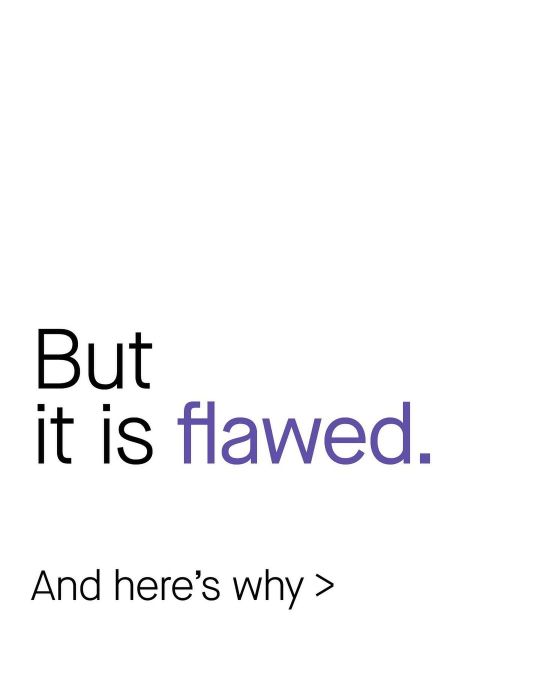
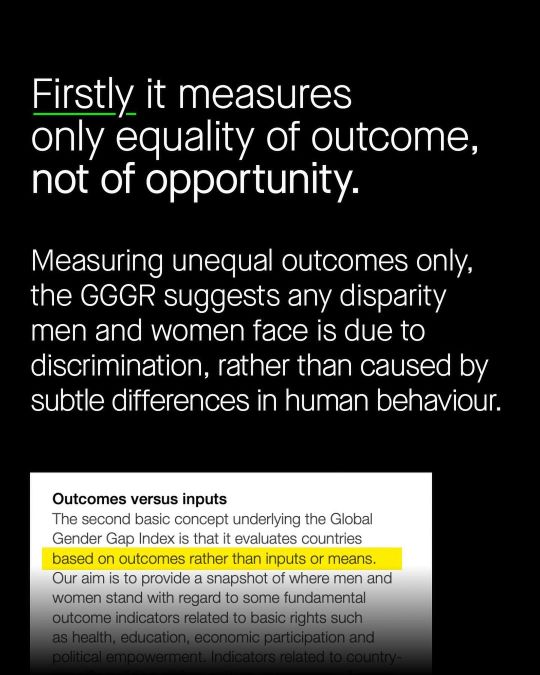
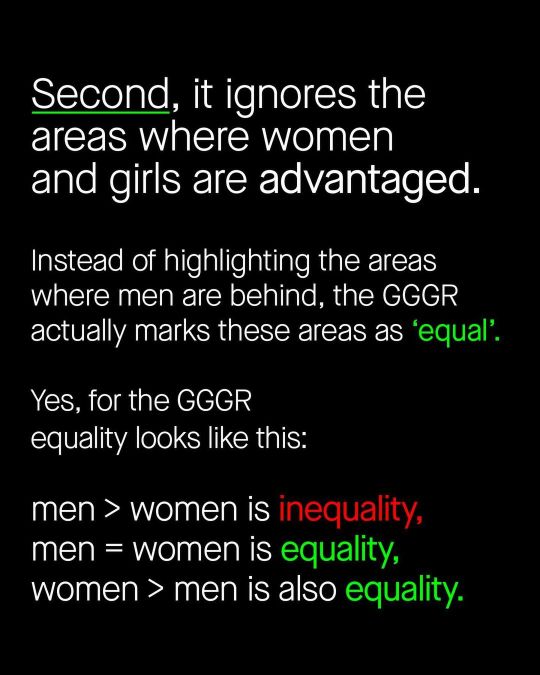


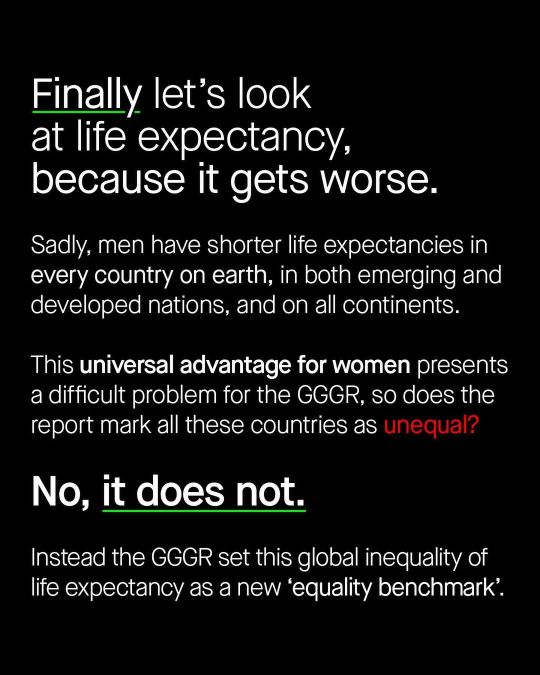
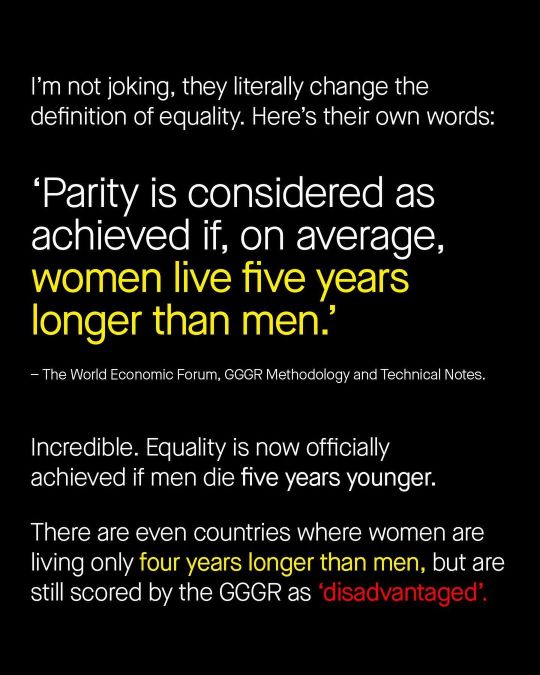
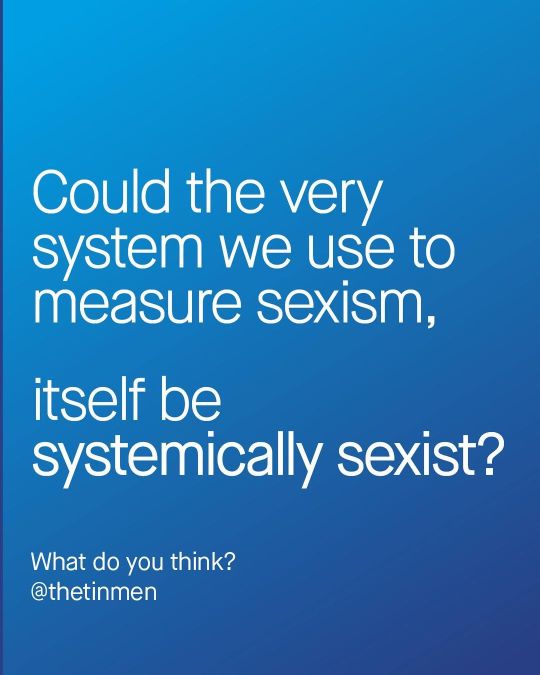
The World Economic Forum is a (self-anointed) global thought leader on politics, sustainability, innovation and equality.
In fact, I actually know the World Economic Forum quite well, I’ve worked with them professionally dozens of times; we’ve collaborated on important projects, we’ve shaken hands, sat around tables and pretended to laugh at each other’s jokes. I’ve even scaled the icy mountains of Switzerland to spend the week documenting the ultra-VIP Davos conference.
Their Global Gender Gap Report is a highly anticipated and respected annual barometer for how the world is doing on its meandering journey toward equality. But with no sense of irony, the report’s methodology is itself, systemically sexist.
So, let’s turn the beady eye of equality onto those pointing the finger, is the GGGR sexist and how?
It’s time to say GG, to the GGGR
Read it for yourself - https://www3.weforum.org/docs/WEF_GGGR_2021.pdf
-
Sources
[1] https://www.theguardian.com/education/2021/aug/13/girls-overtake-boys-in-a-level-and-gcse-maths-so-are-they-smarter
[2] https://www.unodc.org/unodc/en/data-and-analysis/global-study-on-homicide.html
[3] https://www.scielosp.org/article/bwho/2014.v92n8/618-620/en/
[4] https://www.health.harvard.edu/newsletter_article/mars-vs-venus-the-gender-gap-in-health
#The Tin Men#gender equality#equality#inequality#World Economic Forum#Global Gender Gap Report#life expectancy#education#health#misandry#systemic sexism#religion is a mental illness
7 notes
·
View notes
Photo
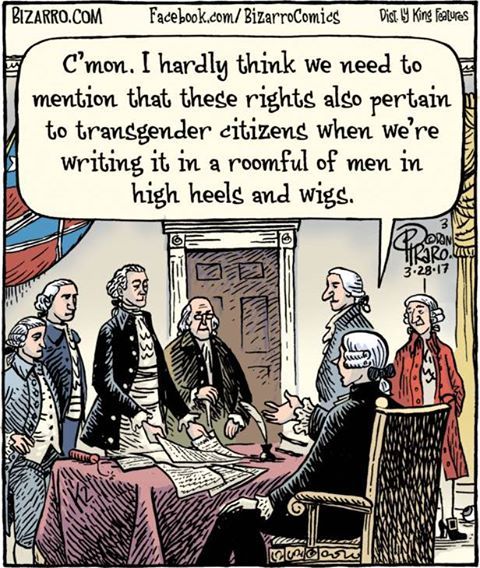
LETTERS FROM AN AMERICAN
March 10, 2023
Heather Cox Richardson
At the Conservative Political Action Conference (CPAC) last weekend, Daily Wire host Michael Knowles said that “for the good of society…transgenderism must be eradicated from public life entirely—the whole preposterous ideology, at every level.” He worded his statement in such a way that it would inevitably create outrage that he could then angrily refute by insisting that “eradicating transgenderism” was not the same thing as eradicating transgender people. This sort of word game is a well-known right-wing tactic for garnering media attention.
Make no mistake: this attack on transgender people represents a deadly attack on the fundamental principle of American democracy, the idea that all people are created equal.
CPAC and its representatives have become increasingly close to Hungarian president Victor Orbán as he has asserted autocratic power in his own country. Orbán has explicitly rejected the liberal democracy that his country used to enjoy, saying that its emphasis on multiculturalism weakens national cultures while its insistence on human equality undermines traditional society by recognizing that women and LGBTQ people have the same rights as straight white men. The age of liberal democracy is over, he says, and a new age has begun.
In place of equality, Orbán advocates what he calls “illiberal democracy” or “Christian democracy.” “Christian democracy is, by definition, not liberal,” he said in July 2018; “it is, if you like, illiberal. And we can specifically say this in connection with a few important issues—say, three great issues. Liberal democracy is in favor of multiculturalism, while Christian democracy gives priority to Christian culture; this is an illiberal concept. Liberal democracy is pro-immigration, while Christian democracy is anti-immigration; this is again a genuinely illiberal concept. And liberal democracy sides with adaptable family models, while Christian democracy rests on the foundations of the Christian family model; once more, this is an illiberal concept.”
Orbán has focused on LBGTQ rights as a danger to “Western civilization.” Arguing the need to protect children, his party has made it impossible for transgender people to change their gender identification on legal documents and made it illegal to share with minors any content that can be interpreted as promoting an LBGTQ lifestyle. After Orbán put allies in charge of Hungarian universities, his government banned public funding for gender studies courses. According to his chief of staff: “The Hungarian government is of the clear view that people are born either men or women.”
As the opening speaker at CPAC in Texas last August, Orbán called for the establishment of a global right wing to continue to work together to destroy liberal democracy and establish Christian democracy.
The American right wing has heard the call, openly embracing Orbán’s principles. Vox senior correspondent Zack Beauchamp, who is a crackerjack analyst of right-wing political ideology both in the U.S. and abroad, noted in 2021 the rise of right-wing ideologues who saw themselves as the vanguard of a “post-liberal order.”
Beauchamp explained that these ideologues reject American democracy. They argue that “religious liberty, limited government, ‘the inviolability of private institutions (e.g., corporations),’ academic freedom, constitutional originalism, free markets, and free speech”—all central tenets of democracy—have created “liberal totalitarianism” that has destroyed “all institutions that were originally responsible for fostering human virtue: family, ennobling friendship, community, university, polity, church.”
They see the government institutions that defend these democratic tenets as part of a totalitarian system designed to destroy national virtue. If this were truly the case (it is not), it would be an act of heroism to try to destroy those systems altogether. Right-wing attacks on the FBI, the Department of Justice, and even the government itself over the arrest of January 6th rioters who they insist were peaceful tourists shore up the idea that the FBI and DOJ are part of a government determined to crush Trump supporters. That ideology invites those who believe it to continue to attack our government.
Knowles’s statement last week that transgenderism must be eradicated from public life was not simply an attack on transgender individuals, although it was certainly that. Tapping into the anti-LGBTQ sentiment that Orbán and those like him have used to win voters, the statement was a crucial salvo in the attempt to destroy American democracy and replace it with Christian nationalism.
But there is a very simple answer to the radical right’s attack on LGBTQ people that also answers their rejection of democracy. It is an answer that history has proved again and again.
Once you give up the principle of equality, you have given up the whole game. You have admitted the principle that people are unequal, and that some people are better than others. Once you have replaced the principle of equality with the idea that humans are unequal, you have stamped your approval on the idea of rulers and subjects. At that point, all you can do is to hope that no one in power decides that you belong in the lesser group.
In 1858, Abraham Lincoln, then a candidate for the Senate, warned that arguments limiting American equality to white men and excluding black Americans were the same arguments “that kings have made for enslaving the people in all ages of the world…. Turn in whatever way you will—whether it come from the mouth of a King, an excuse for enslaving the people of his country, or from the mouth of men of one race as a reason for enslaving the men of another race, it is all the same old serpent.”
Either people—men, in his day—were equal, or they were not. Lincoln went on: “I should like to know if taking this old Declaration of Independence, which declares that all men are equal upon principle and making exceptions to it…where will it stop?”
—
LETTERS FROM AN AMERICAN
HEATHER COX RICHARDSON
#Letters From An American#Heather Cox Richardson#equality#LGBTQ#the principle of equality#authoritarianism#white supremecy#illiberal democracy#democratic rule#Bizarro Comics
42 notes
·
View notes
Text
A message from the director of Outright International
I write to you from Cape Town, South Africa, where news of the U.S. election has left many of our global family reeling. The outcome is not what we had hoped for.
I think of Shirley Chisholm, the first black woman to run for President in the U.S., who once said that she ran for President, “Because I am in love with the America that does not yet exist.” That was over 50 years ago, and it makes me angry that America has not come further.
My Outright colleagues and I are in meetings ahead of a global LGBTIQ rights conference that starts next week. For me, being here among activists and leaders from over 65 countries feels particularly powerful at this moment. Together, we form part of a global movement for equality and inclusion, and we join together to defend our rights and lives.
I am disappointed in the election result – but not disheartened. Outright was founded in 1990, at a time when our rights were barely recognized anywhere around the world. Today, Outright and our partners work in many countries with authoritarian governments. While this election result represents a significant setback, we cannot allow it to defeat us.
We will undoubtedly feel the impact of diminished U.S. leadership on human rights for LGBTIQ people. The full extent to which the administration will use its voice to promote anti-trans, anti-queer, anti-women, and other regressive ideologies globally remains to be seen, and will also depend on who occupies positions of power in the new administration. We will surely see shifts in resources. Yet, we are as prepared as we can be. We will adapt and continue our work with resilience—because our mission and values demand nothing less.
I know that for many in the U.S. that share Outright’s values, this is a very frightening moment. And I acknowledge that the fear is not equally distributed. The incoming administration has targeted trans and gender non-conforming people, and its promotion of racism and xenophobia impacts black and brown people disproportionately. I also acknowledge that geo-political uncertainty will impact people unevenly.
Yesterday I spoke with an activist from Uganda who I have known for more than a decade, and we talked about how even if the community in Uganda is successful with their appeal of the Anti-Homosexuality Act, it will not resolve all the issues they face. Progress is not linear anywhere.
Today, I am especially grateful to serve as Outright’s Executive Director. In moments like this, I appreciate that I can feel the weight of disappointment and at the same time feel that we, together, act for a world that does not yet exist. Being in South Africa at a meeting with LGBTIQ activists from around the world, but also “here” at Outright, I am filled with determination. The solidarity, strategies, and energy we gather here will fuel our fight in the coming years and beyond.
With gratitude and solidarity,
Maria Sjödin [they/she] Executive Director
1 note
·
View note
Text
Ivy Belle Couturier Watteau Lallier is a renowned global figure, born into the wealth and prestige of the most influential family in French high society. Her lineage traces back to French aristocracy, and from a young age, Ivy was groomed for greatness. With her striking blonde hair, radiant blue eyes, and an air of effortless grace, she became the epitome of elegance. Raised in opulent surroundings, Ivy spent her childhood between luxurious estates, castles, and some of the world’s most exclusive social circles, receiving a world-class education at the finest schools in Europe.
From an early age, Ivy's poise and beauty caught the attention of the fashion world. By her late teens, she had already graced the runways of Paris, Milan, and New York, becoming a sought-after model for luxury brands like Chanel, Dior, and Givenchy. Her presence in the fashion industry skyrocketed, and soon her face adorned the covers of international magazines like Vogue, Elle, and Harper's Bazaar. However, her crowning achievement came when she won the prestigious title of Miss Universe, a victory that established her as a global icon and elevated her influence far beyond the fashion world.
Yet, despite the glitz and glamour that surrounded her, Ivy’s heart always beat for a higher purpose. Drawing inspiration from her privileged background, she was determined to give back to those less fortunate. This led her to found Empower Her (EPWH), a philanthropic organization dedicated to empowering women and girls around the world. The mission of EPWH is to provide access to education, healthcare, and economic opportunities, particularly for women in vulnerable and underserved communities. Ivy’s vision for EPWH grew rapidly, and through her extensive connections, she has been able to raise significant funds and partner with global organizations to champion gender equality and women's rights.
Ivy balances her demanding career as a model and philanthropist with her personal life as the proud mother of *Charles, her young son, and heir to the Couturier-Watteau-Lallier legacy. Being a mother has brought new depth to Ivy’s life, and she is known to be a devoted parent, often seen at charity galas or fashion events with her son by her side. Her life, however, is far from just fashion and family. Ivy is a skilled public speaker, advocating for women’s rights at global summits, and serves as a mentor to young women through her Empower Her mentorship programs. Her dedication to philanthropy has earned her numerous accolades, including recognition by the United Nations as a leading voice in global women's empowerment.
Behind her beauty lies a woman of immense intellect, compassion, and strength. Ivy is fluent in several languages, including French, English, and Italian, and she is known for her diplomatic charm, able to navigate complex international negotiations. She frequently attends high-profile events, from state dinners in Paris to humanitarian conferences in Geneva, all while maintaining her image as one of the world’s top models. Her name is synonymous with elegance and influence, but Ivy Belle Couturier Watteau Lallier is driven by something far greater: a desire to leave a lasting, meaningful impact on the world.
Today, Ivy splits her time between her family’s ancestral estate in the south of France, a luxurious apartment in Paris, and a vacation home in the Maldives. Whether she is raising awareness for women’s issues, spending time with Charles, or walking the runway at Paris Fashion Week, Ivy Belle continues to redefine what it means to be a woman of power, grace, and purpose in the modern world.
1 note
·
View note
Text

The comprehensive schedule for the UN Climate Change Conference - COP28 in Dubai! From Nov 30 to Dec 12, global leaders converge for the 28th Conference of the Parties (COP 28), the 18th session of the Kyoto Protocol (CMP 18), and the 5th session of the Paris Agreement (CMA 5). This detailed overview outlines discussions and critical events hosted by the Subsidiary Bodies, including SBSTA 59 and SBI 59.
Schedule Overview
WEEK 1 - Thursday 30 November - Wednesday 6 December
30 Nov- COP 28 Opening Ceremony 1-2 Dec- World Climate Action Summit 3 Dec- Health/relief, recovery and peace 4 Dec-Finance/trade/gender equality/accountability 5 Dec-Energy, industry, and just transition 6 Dec- Multilevel action, urbanization and built environment/transport
(Thursday 7 December = Rest day)
WEEK 2 - Wednesday 7 December - Tuesday 12 December
8 Dec- Youth, children, education and skills 9 Dec- Nature, land use, and oceans 10 Dec- Food, agriculture and water 11 Dec- Final negotiations 12 Dec- Closing COP/CMP/CMA
Visit our news section for COP 28 Information, https://blog.geohoney.com/category/our-planet
5 notes
·
View notes
Text
Harnessing the Power of Digital Education: A Call for Inclusivity and Quality at the 2024 World Conference

The 2024 World Digital Education Conference will take place in Shanghai, China, from January 29 to 31, 2024. At the invitation of Mr. Huai Jinpeng, the Chinese Minister of Education, Amb. Simona-Mirela Miculescu, President of UNESCO’s 42nd General Conference, will participate in the upcoming event. Hosted by the Ministry of Education of the People's Republic of China, in collaboration with the Chinese National Commission for UNESCO and the Shanghai Municipal People’s Government, this conference is set to gather over 600 attendees, including Ministers and senior education officials, UN agency representatives, academics, teachers, digital technology specialists, and private sector stakeholders. Under the overarching theme “Digital Education: Application, Sharing, and Innovation,” the conference will delve into a variety of crucial topics, including enhancing digital literacy among educators, the digitalization of education, global trends in digital education development, artificial intelligence ethics, and the opportunities and challenges posed by digital transformation in primary education and governance. This event follows the UN Transforming Education Summit, which recognized digital transformation in education as a key area for action. The conference aims to provide valuable insights on ensuring that the benefits of digital advancements are accessible to all learners.
In her opening remarks, Amb. Miculescu emphasized the transformative role of digital education as a vital complement to traditional learning, highlighting its importance in maintaining educational continuity during crises, as evidenced during the COVID-19 pandemic. However, she also addressed significant challenges that must be confronted, such as accessibility, content quality, and connectivity. Amb. Miculescu urged policymakers to create free, open, and universally accessible digital learning platforms featuring high-quality, curriculum-aligned resources while prioritizing user privacy and data security. She underscored the necessity of inclusivity and quality in digital education, particularly emphasizing gender equality to bridge existing digital skill gaps. In light of the rise in hate speech and discrimination exacerbated by social media, she called for careful monitoring of content quality on educational platforms. She announced that UNESCO has designated March 19 as the International Day for Digital Learning, aiming to promote collaborative actions on significant digital education issues globally and nationally. Lastly, Amb. Miculescu congratulated China on the establishment of the UNESCO International Institute for Science, Technology, Engineering, and Mathematics Education as a UNESCO Category I institute in Shanghai. During her visit, she plans to tour the esteemed Tongji University, Suzhou’s renowned classical
0 notes
Text
Promoting Human Rights: Why Choose WHRC?

About WHRC
The World Human Rights Council (WHRC) is a global organization dedicated to promoting and protecting human rights. Based in Hyderabad, India, WHRC works to advocate for justice, equality, and human dignity for all, regardless of gender, race, religion, or social standing. Through a commitment to educating individuals about their rights and empowering communities, WHRC actively contributes to building a more just and equitable society. FOR MORE
Contact Information:
Flat No. 201, Sai Balaji Apartments, Plot No. 53, near Bank of Baroda, Arunodaya Colony, Madhapur, Hyderabad, Telangana 500081
Tel: +918143336440 | +919989822152 | +919393640444
Facebook Page
What Are Human Rights?
Human rights are the fundamental rights and freedoms that every individual is entitled to, simply because they are human. These rights include the right to life, liberty, and security of person; freedom of expression; the right to work and education; and freedom from torture and discrimination. Human rights are universal, inalienable, and indivisible, meaning they belong to everyone equally, cannot be taken away, and are interconnected.
Key Human Rights Principles:
Equality and Non-Discrimination: Everyone is entitled to rights and freedoms without discrimination based on race, gender, religion, or other statuses.
Right to Life and Security: The right to live and be free from violence or threats.
Freedom of Speech and Expression: The right to express opinions and ideas without fear of repression.
Right to Education: Ensuring everyone has access to education.
Freedom from Torture and Slavery: Every human being must live without fear of physical harm or bondage.
Key Organizations That Uphold Human Rights
While WHRC plays a crucial role in promoting human rights, other prominent organizations also fight for this cause globally. Some of these include:
United Nations Human Rights Council (UNHRC): A global body committed to promoting and protecting human rights.
Amnesty International: A global movement dedicated to ending abuses of human rights.
Human Rights Watch (HRW): An independent organization that investigates human rights violations worldwide.
United Nations Peacekeepers (UNPKFC): WHRC collaborates with the UNPKFC in promoting global peace and human rights.
Why Choose WHRC?
Choosing WHRC means standing for equality, justice, and human dignity. The organization’s commitment to:
Advocacy and Awareness: WHRC creates awareness about fundamental human rights, teaching individuals how to protect and defend these rights in their communities.
Empowerment and Education: Through various initiatives and campaigns, WHRC equips people with knowledge about their rights and how to fight for them.
Collaborative Efforts: WHRC works alongside international organizations, including UNPKFC, to ensure that human rights are upheld globally.
By partnering with WHRC, you support a platform that believes in the universal dignity of all people. WHRC's activities include:
Hosting educational seminars on human rights.
Providing legal assistance to victims of human rights abuses.
Actively engaging in public awareness campaigns.
Gallery and Activities at WHRC
At WHRC, numerous activities help raise awareness and promote human rights advocacy:
Seminars and Conferences: Regularly held to educate and empower communities.
Workshops for Youth: Teaching the next generation the importance of human rights and how to advocate for them.
Collaborative Initiatives: Working with local and global partners to promote peace and justice worldwide.
Our gallery reflects our commitment to human rights with images showcasing our activities such as public awareness campaigns, legal assistance to marginalized communities, and collaborations with peacekeeping forces.
Report a Case
If you or someone you know has been a victim of human rights abuse, WHRC encourages you to report the case through our official communication channels. Our legal experts will work closely with you to ensure justice is served.
Contact for Reporting:
Phone: +918143336440 | +919989822152 | +919393640444
Hashtags to Follow
When promoting or discussing human rights, use relevant hashtags to help spread awareness. Some key hashtags include:
#WHRC
#HumanRights
#EqualityForAll
#JusticeForAll
#UNPKFC
#PeaceAndRights
#HumanDignity
In summary, WHRC is at the forefront of human rights advocacy, working tirelessly to create a more just and equitable world. Join us in our mission to promote peace, dignity, and human rights for all.
For more information or to get involved, visit our office in Madhapur, Hyderabad, or connect with us on social media.
0 notes
Text
Daily Current Affairs: A Quick Overview

In today’s fast-paced world, keeping up with daily current affairs is essential to stay informed and make educated decisions. From political updates to technological breakthroughs, every day brings something new and exciting. In this blog, we will highlight some of the key happenings around the world.
1. Political Shifts Around the Globe
Every day, countries experience significant political changes, from elections to policy reforms. Nations like the United States, China, and India often dominate the headlines, but smaller nations also see impactful shifts that deserve attention. For example, recent elections in various African nations are shaping the continent’s political future. Staying updated helps you understand these dynamics better.
2. Economic Updates You Should Know
Global economies are constantly evolving, with stock markets fluctuating and countries adjusting their fiscal policies. Today’s focus is on inflation and how countries are managing it post-pandemic. Central banks, particularly the Federal Reserve, are trying to strike a balance between controlling inflation and stimulating growth. Such economic trends affect everyone, from business owners to consumers.
3. Environmental News
Environmental concerns are a hot topic globally. Climate change, conservation efforts, and sustainability practices are continually making headlines. Today, a major climate conference in Europe has brought together world leaders to discuss reducing carbon emissions and increasing the use of renewable energy sources.
4. Technological Innovations
In the realm of technology, every day brings new advancements. Today, AI and machine learning are revolutionizing industries like healthcare and finance. Recent innovations in renewable energy, electric vehicles, and space exploration are pushing the boundaries of what technology can achieve. Keeping an eye on these developments can provide insight into the future of industries.
5. Social Issues and Cultural Events
Cultural movements and social issues are also in the news daily. Today, there are numerous protests and social campaigns happening across the world, advocating for various causes like gender equality, human rights, and racial justice. These movements play a crucial role in shaping societies.
Read more: Current Affairs for UPSC
0 notes
Text
Sandeep Marwah Visits Swaminarayan Akshardham in Robbinsville Advocates for Global Peace Through Art and Culture

Robbinsville, New Jersey, USA – “You do not need to work to become spiritual. You are spiritual; you need only to remember that fact. Spirit is within you. God is within you,” stated Dr. Sandeep Marwah, President of the World Peace Development and Research Foundation, during his visit to BAPS Swaminarayan Akshardham, one of the world’s largest temples, located in Robbinsville, New Jersey.
In a press conference, Dr. Marwah also Chair for Indo American Film and Cultural Forum, elaborated on the objectives of the World Peace Development and Research Foundation. The foundation aims to conduct high-quality, impactful research to understand the roots of conflict and the pathways to peace. It provides training and educational programs that equip individuals and communities with the necessary tools for promoting peace and resolving conflicts. Additionally, the foundation advocates for policy changes that prioritize peace, justice, and sustainable development in collaboration with other institutions and stakeholders. Building and maintaining an extensive global network of peace advocates and practitioners is also a key focus of the foundation.
The foundation organizes cultural festivals that showcase traditional music, dance, theater, and cuisine from various regions, fostering cross-cultural understanding and the celebration of diversity. Peace conferences are held where scholars, activists, and experts from different fields gather to discuss and exchange ideas on peace-building, conflict resolution, and global harmony. Workshops and seminars on conflict resolution, non-violent communication, and mediation techniques are conducted to provide practical tools for individuals and communities to address conflicts peacefully.
Artist residencies are offered, allowing artists from different countries to live and work together, creating collaborative projects that explore themes of peace, love, and unity. The foundation develops and implements peace education programs in schools and universities to promote empathy, understanding, and respect for diversity among students. Cultural exchanges between artists, musicians, dancers, and performers from different countries are facilitated, fostering dialogue, collaboration, and mutual appreciation.
Public art installations are commissioned to convey messages of peace, love, and unity, serving as reminders and catalysts for positive change within communities. International collaborations are forged with other peace organizations, cultural institutions, and NGOs to enhance the impact and reach of peace-building initiatives worldwide. Youth engagement programs are developed to involve young people in peace-building activities, including art competitions, leadership training, and mentorship programs that empower them to become ambassadors of peace.
Art therapy initiatives are promoted in conflict-affected areas and communities, providing individuals with a creative outlet for healing, expression, and reconciliation. Peace advocacy campaigns are launched using art and culture as powerful tools to raise awareness about peace-related issues such as disarmament, human rights, gender equality, and environmental sustainability. The foundation supports grassroots initiatives by providing grants and resources to local community organizations and individuals working on peace-building projects, ensuring that peace efforts are decentralized and inclusive.
Networking opportunities and dialogue platforms are facilitated for artists, cultural activists, and peace advocates to connect, collaborate, and share best practices in their respective fields. These activities, when implemented with dedication and strategic planning, contribute to the foundation’s mission of developing and promoting love, peace, and unity through art and culture.
#Sandeep Marwah Visits Swaminarayan Akshardham in Robbinsville Advocates for Global Peace Through Art and Culture#Dr. Sandeep Marwah President of WPDRF
0 notes
Text
As members of a global ultraconservative network, Vision Network, met for a behind-closed-doors conference in Croatia’s capital, a protest action was held on Wednesday in Zagreb’s European Square with the message: “Not in our city, we know your agenda.”
The protest was staged by the fAKTIV – Feminist Collective, an informal organisation whose activities include the fight for women’s rights, countering gender-based violence against women and advocacy for reproductive and sexual rights.
Vision Network, formerly known as Agenda Europe, is an umbrella group for right-wingers who oppose abortion, equal marriage, divorce and contraception.
Vedrana Bibic from fAKTIV told BIRN that they wanted to warn the public about what was happening at the conference, which is closed to the public and will be held until Friday.
“It sounds like some bizarre conspiracy theory but unfortunately it is not. These are the people who banned abortion in Poland… People think it is some authentic Croatian story, but it is a very well-financed international network,” Bibic told BIRN.
“The intentions of the network are clear and dangerous: banning abortion and contraception, making divorce more difficult, criminalising the LGBTIQ+ community… They have generous means at their disposal, based on which they can influence laws and resolutions on women’s reproductive rights and the rights of the LGBTIQ+ community,” fAKTIV said in a press release.
It claimed that they were behind a referendum to ban same-sex marriage in Croatia in 2013, campaigns against the so-called Istanbul Convention, the Council of Europe Convention’s on Preventing and Combating Violence Against Women, and the phenomenon of the ‘kneelers’, groups of socially conservative Catholic men who kneel to pray in Croatian squares each month.
The Vision Network website lists Zeljka Markic, who heads In the Name of the Family, a Catholic conservative group that is behind the anti-abortion Walk for Life initiative, as one of its coordinators in Europe.
In Croatia, organisations and other groups connected to Agenda Europe include Croatia for Life, 40 Days for Life and CitizenGo, some of which are sponsored by people from the Catholic Church.
11 notes
·
View notes
Text
Diversity Speakers Delhi NCR
There are so many enticing Diversity & Inclusion speakers just waiting to speak at your next event. Bringing a top speaker or expert to your event can be a game changer. Whether it is inspiring, engaging life stories or driving change within your organisation or institution. Connect with Best Diversity & Inclusion speakers & leaders through Indian Speaker Bureau; a platform where leading organisations partner for their business conferences and events – via keynote presentations, cross-industry interactions, inspirational and leadership sessions. Diversity Speakers Delhi NCR
Embracing Diversity: Catalysts for Transformation
At Indian Speaker Bureau, we proudly present our Diversity and Inclusion Speaker category—a curated collection designed to promote understanding, inclusivity, and positive change. In a world grappling with social challenges, our speakers stand as Catalysts for Transformation, bringing forth conversations that bridge gaps, break down barriers, and celebrate the rich tapestry of human experience. We are a one stop solution to find a diversity speaker and get the excellent delivery done.
Harmony in Diversity
In the realm of LGBTQ rights, racial tolerance, and religious harmony, our speakers are dedicated Catalysts for Change. Beyond traditional presentations, they initiate conversations that echo the pressing need for acceptance and inclusion. Embracing diversity is not merely an option—it is a necessity. Our Diversity and Inclusion Speakers lead the way in fostering harmony, creating a culture where every voice, regardless of gender identity, race, or religion, is not only heard but celebrated.
Inclusive Voices
Addressing contemporary social challenges, our speakers amplify Inclusive Voices that extend beyond the mainstream. They spark Impactful Conversations challenging biases and inspiring transformation. Navigating discussions on LGBTQ rights, racial equality, and religious diversity, our speakers foster environments where diversity isn't just acknowledged but celebrated. These conversations are crucial in creating workplaces and communities reflecting the richness of the global mosaic.
Unity through Uniqueness
In the pursuit of unity, our Diversity Advocates lead the way by recognizing that true unity is found in embracing Uniqueness. In the context of LGBTQ rights, racial tolerance, and religious harmony, they emphasize the strength derived from acknowledging and respecting individual differences. Their presentations are a testament to the power of diversity, illustrating how organizations can thrive by leveraging the distinctive strengths each individual brings to the table.
Breaking Barriers, Building Bridges
As the world grapples with racial tensions, our speakers are experts in Breaking Barriers and Building Bridges. Addressing systemic challenges, shedding light on unconscious biases, and providing actionable strategies to create an inclusive workplace, they contribute to a culture where collaboration flourishes, and innovation knows no bounds.
Equity Pioneers
In an era where equity is paramount, our speakers are Pioneers Navigating the Path to Inclusion. Offering insights, strategies, and actionable steps to create workplaces that champion diversity, they empower organizations to move beyond diversity quotas, fostering environments where every individual has an equal opportunity to succeed.
The Need of the Hour: Why Choose Our Diversity Speakers?
In today's ever-evolving landscape, the demand for diversity and inclusion is closely tied to addressing critical social issues. Organizations that embrace diversity not only benefit from a multitude of perspectives but contribute to positive social change. Our Diversity and Inclusion Speakers not only address the 'why' but provide actionable steps to address current social challenges. They equip your audience with the knowledge and tools to create lasting change within their organizations and communities. Diversity Speakers Mumbai
Elevate Your Event with Diversity and Inclusion
Ready to transform your event into a catalyst for positive change? Contact us today to explore our roster of Diversity and Inclusion Speakers. Let us tailor a presentation that addresses current social issues, leaving your audience inspired, informed, and ready to embrace a future where diversity is not just celebrated but integrated into the fabric of success.
0 notes
Text
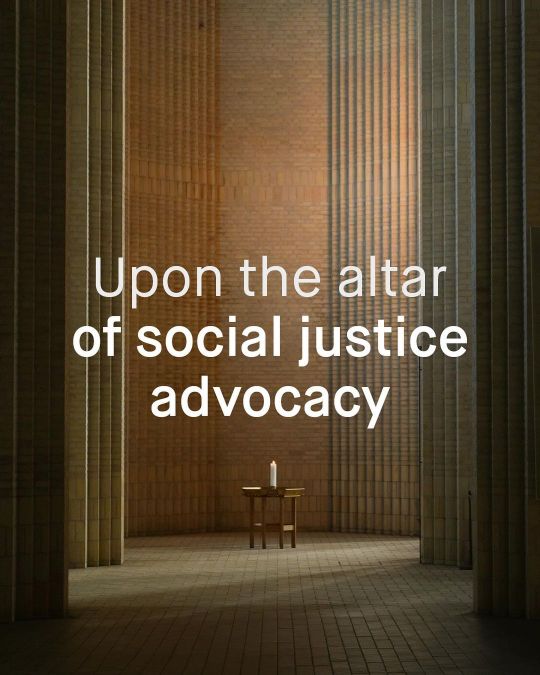
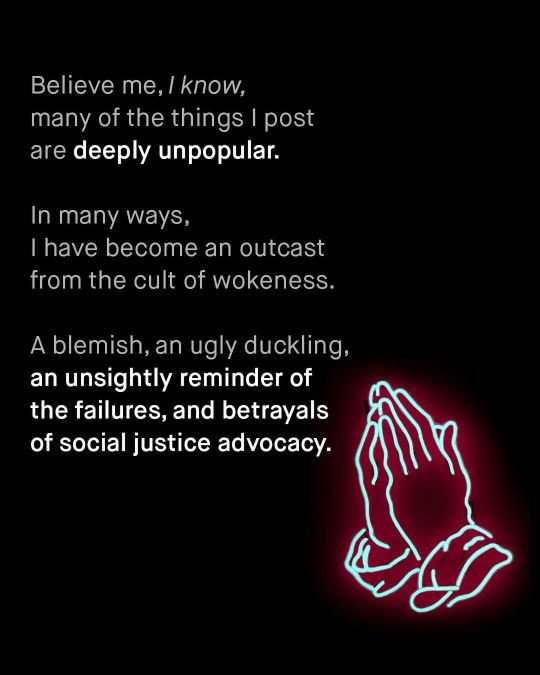

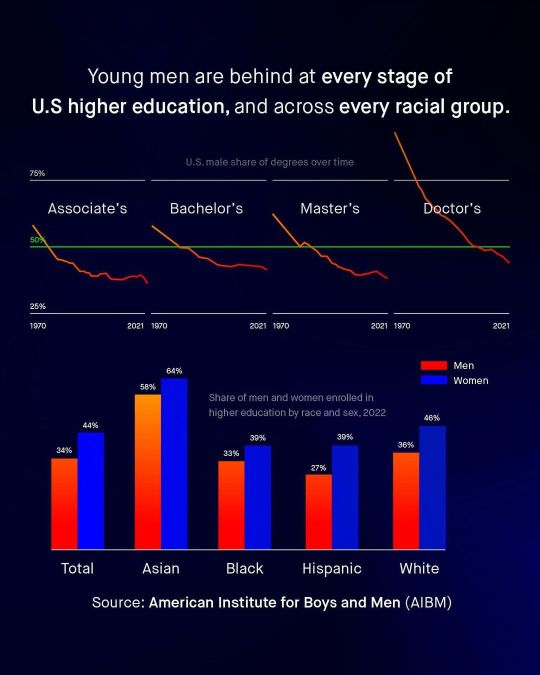
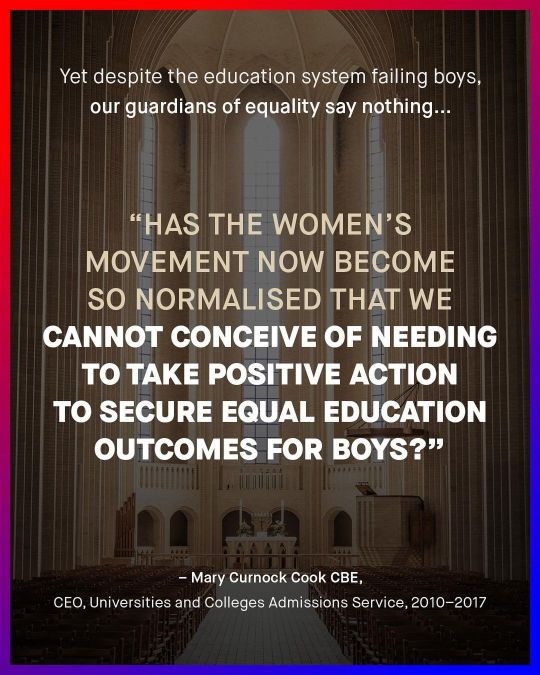
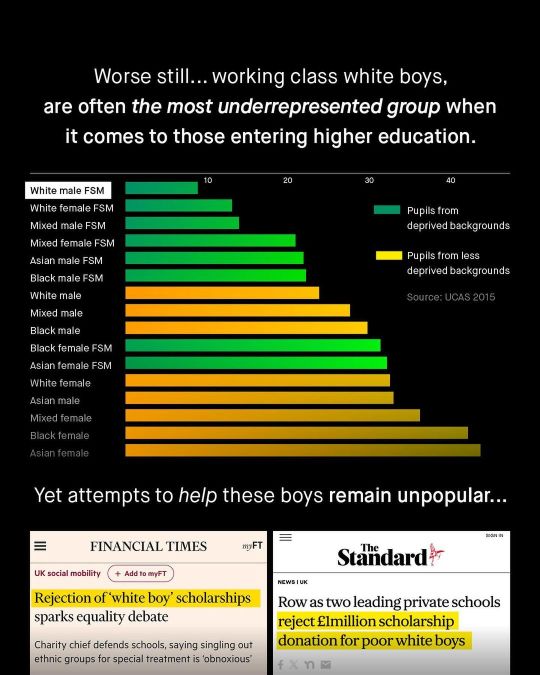
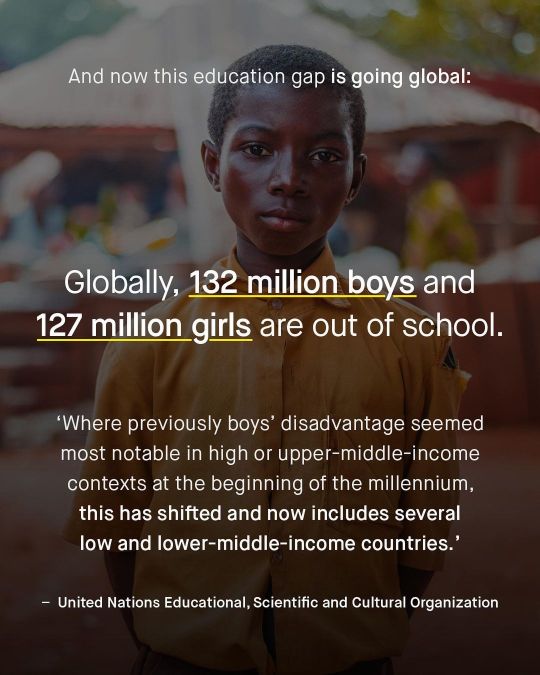



Fundamentally, advocacy is about helping others, rather than helping yourself… to look good.
And my god, I know, the things I post on this page, certainly do not look good.
No, these issues will not look good on your social media feed, I doubt such discussions will make you many friends at parties either or win you top marks at your next class presentation.
There are no prizes, brand deals, coupon codes, or rounds of applause at @thetinmen.
No book deals. No invites to speak at conferences. Or photo ops with politicians.
You will not be thanked, likely shunned, and will probably find yourself uninvited to that next social occasion.
But these issues are real, and incredibly important.
That’s what advocacy is.
It’s about doing good, not looking good.
And the cult of wokeness has clearly lost sight of this.
Self-serving, self-centred, and painfully virtuous, the SJW guardians of equality have skipped past the area of men and boys' advocacy; clearly unwilling, or uninterested in examining their own failures, or in accepting their own portion of accountability, and would rather keep the self-aggrandising circle jerk going a little longer.
It is a mess.
A backward situation where the people who are doing harm, are not only unaware of said harm, but actually believe they are part of the solution, each of them the hero of their own story.
So, who will stand up to the cult of wokeness run amok?
Who will put their head above the parapet?
Because sadly, if change for men and boys is to arrive, many more of us will have to be sacrificed upon the altar of social justice.
So, who’s joining me?
~ [1] https://www.theatlantic.com/magazine/archive/2022/10/boys-delayed-entry-school-start-redshirting/671238/ [2] https://www.bbc.co.uk/news/education-51313438
AIBM: https://aibm.org/research/male-college-enrollment-and-completion/
Mary Curnock Cook: https://www.independent.co.uk/student/news/head-of-ucas-expresses-concern-as-recent-data-reveals-gender-gap-in-uk-higher-education-is-widening-a6799081.html
UNESCO: https://www.unesco.org/en/articles/what-you-need-know-about-unescos-global-report-boys-disengagement-education
==
If your issues need to be spoken about in hushed tones behind closed doors, you're not the "oppressor." If you can demonize and shut down other people by calling them a name or accusing them of some imagined bigotry, you're not "marginalized," you're the hegemony.
For some reason, we're not supposed to notice this, but it's indisputably true. Yes, I see you.
When you get angry, call me a name or expect me to apologize for posting this kind of information, you're telegraphing and admitting that you believe you have the cultural and societal power to do so, and you're not the powerless victim you pretend you are.
#The Tin Men#education#boys in education#education gap#no apologies#come at me bro#try me#fuck around and find out#virtue signal#virtue signalling#virtue signaling#religion is a mental illness
6 notes
·
View notes